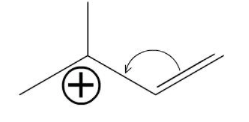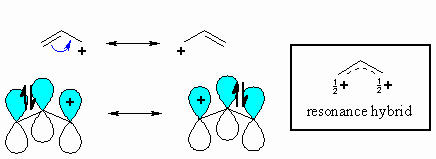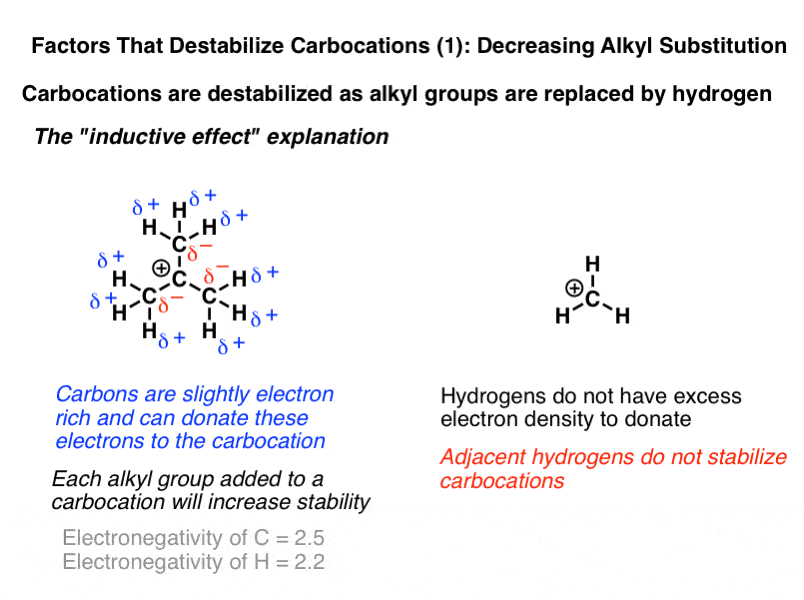Any trivalent disubstituted carbon is generally a vinylic carbocation in which the carbon atom which is bearing the positive charge is found to be double bonded and will always exist as sp hybridized.
Vinylic carbocation resonance structures.
This organic chemistry video tutorial explains how to determine which carbocation is most stable.
Stability of carbocation intermediates.
The organic chemistry tutor 103 594 views 15 37.
See also primary allylic carbocation secondary allylic carbocation tertiary allylic carbocation.
In the first mechanism step the alkyne is protonated by hydronium ion a strong acid to produce a resonance stabilized secondary vinylic carbocation shown in red.
This carbocation is also a benzylic carbocation.
It provides plenty of examples including allylic and vinyli.
Acid catalyzed hydration of phenyl acetylene a terminal alkyne involves a vinylic carbocation intermediate.
We know that the rate limiting step of an s n 1 reaction is the first step formation of the this carbocation intermediate.
Formation of the carbocation.
Carbocation stability resonance rearrangement allylic vinylic examples organic chemistry duration.
A vinylic carbocation which has an empirical formula of c h is a carbocation that has a positive charge only on the alkene carbon atom.
The allylic carbon and the nearby double bond.
Heterolytic bond cleavage results in the ionization of a carbon atom and a leaving group in the starting compound the carbon atom is sp 3 hybridized.
When the leaving group leaves the carbon for which it was attached becomes sp 2 hybridized with an empty p.
The true structure of the conjugated allyl carbocation is a hybrid of of the two resonance structure so the positive charge is delocalized over the two terminal carbons.
The lightest allylic carbocation 1 is called the allyl carbocation.
An allylic carbocation is a resonance stabilized carbocation in each of the two resonance forms of which the formal charge of 1 is on an allylic carbon.
The rate of this step and therefore the rate of the overall substitution reaction depends on the activation energy for the process in which the bond between the carbon and the leaving group breaks and a carbocation forms.
An allylic carbon is one that is directly attached to a pi bond.
An allylic system has a minimum of 3 carbons.









